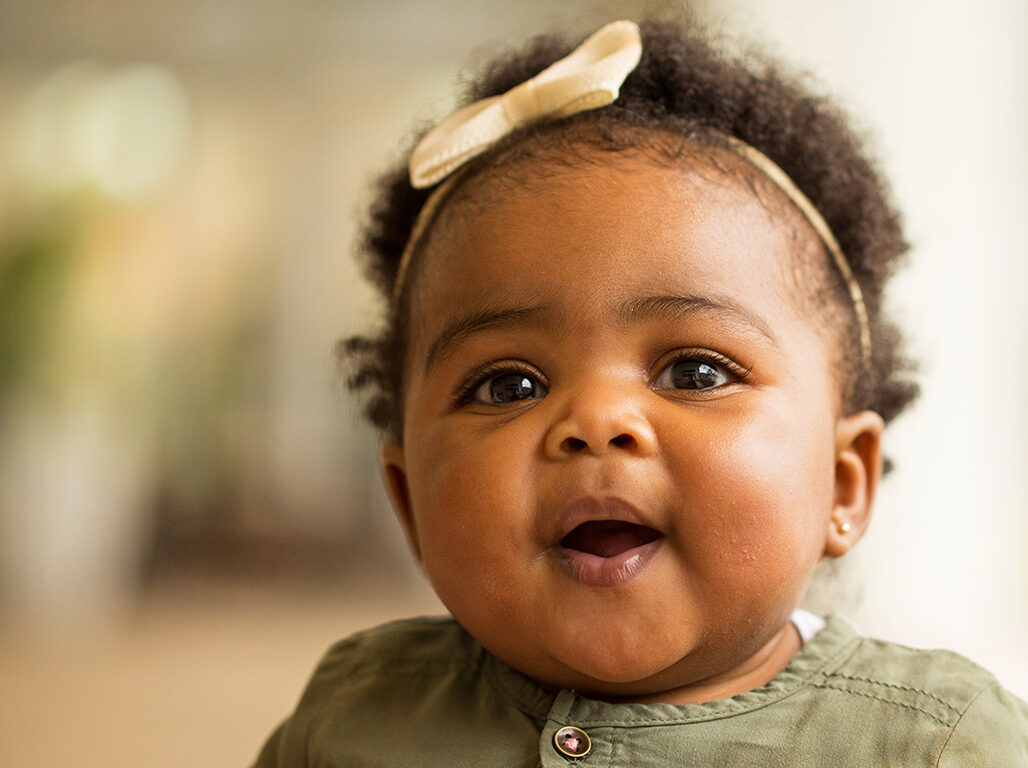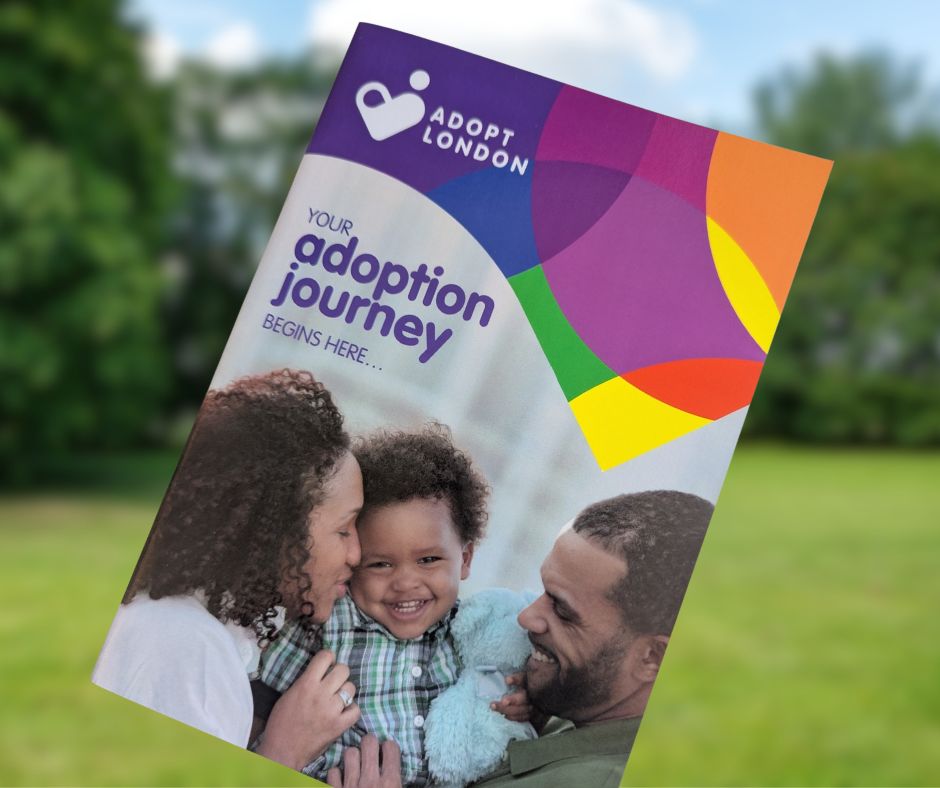Early Permanence
We need adoptive parents who can take on the responsibility of becoming foster carers to a child, with the chance of going on to adopt them later, if the court decides that the child should be adopted.

What is Early Permanence?
Early Permanence (EP) is an umbrella term for a type of care planning which helps a child who needs to be cared for outside of their family to find a safe, stable home as quickly as possible. Early Permanence adoption can be used for children of all ages who are in the care of the local authority, where there is a strong likelihood of the child needing a care plan for adoption.
National adoption data show that most children placed through Early Permanence go on to be adopted, but a small proportion will return to the care of their birth family.
At Adopt London, all approved adoptive families are invited to complete our additional Early Permanence Preparation Training. This training helps families carefully consider whether Early Permanence is the right path for them. Once completed, it opens the possibility of being matched with a wider range of children waiting for adoption.
Want to learn more? Explore inspiring stories, news articles, interviews, and case studies from families who have embraced Early Permanence.
-
An Early Permanence lived experience story
"We thought that as we had two of our own birth children that Early Permanence would not be something that we would be able to manage. It was our social worker who asked us to consider Early Permanence and explained the challenges."
EP Adoption Story -
Early Permanence carers needed across London
We need adoptive parents who can take on the responsibility of becoming foster carers to a child, with the chance of going on to adopt them later, if the court decides that child should be adopted.
EP news article -
EP Blog
Ava and Thom* knew adoption would, in some way, be in their future. So, after taking time to settle into their new home, they set about finding out about adoption. Ava shares their story.
EP Interview
What are the benefits of Early Permanence adoption?
Reduces uncertainty
Early Permanence shifts the uncertainty about future placements from the child to the adults and provides protection for the child against the impact of delay.
Prevents multiple placement moves
Children entering the care system from a very young age often experience multiple changes in foster placements while the courts decide on their Care Plan. Early permanence protects children from experiencing multiple moves by providing children with uninterrupted and consistent care while assessments and decisions are made. This stability and security minimise disruption and offer children the possibility of being placed with foster carers who may go on to adopt them, if the court deems it in the child’s best interest.
Supports healthy attachment & development
Early Permanence offers children the possibility of developing a secure attachment from the earliest possible moment. This is key to their emotional, physical and mental development, giving them the best start possible in life, despite circumstances.
Early Permanence considerations
Many people may feel drawn to Early Permanence as a route to adopting a baby or young child. It’s important to note, however, that Early Permanence comes with its complexities.
Birth family contact
It is expected that the Early Permanence carers will help to ensure that the child has regular supervised family time (also known as contact) with their birth family while the court assessments are completed. This is usually around three times a week. The Early Permanence carers will take the child to all family time meetings, to enable the child to meet regularly with the significant birth family members and maintain a relationship. Keeping some form of contact with a birth family benefits everyone involved and can help to provide personal history, which is vital to a child’s developing sense of identity and helps them to integrate the past with the present. Find out more.
“Birth mum recognised that her situation meant that she was not the person that would be able to give that child the life that she knew it deserved and I can’t imagine what it took for her to reach out and she remained committed to the process throughout” – Adopt London representative
Remaining realistic
Early Permanence comes with the chance that a child may return to their birth family. You would have to manage this uncertainty while the court reaches a final decision based on the best interest of that child. Early Permanence carers need to prepare themselves and their family for the possibility of the child returning to their birth family. They will need to work together with the court, social workers and the child’s local authority in the most sensitive way for the child. Throughout this time, a support network will be important to you.
Could you be an Early Permanence carer?
The children considered for Early Permanence are some of the most vulnerable in the care system. To be an Early Permanence carer, you need to be able to prioritise a child’s needs and give them the precious gift of stability at a time of great uncertainty in their lives. Does this sound like you? If so, we’re here to help you start your adoption journey. If it would help, we can also arrange for you to talk to other adopters who have provided Early Permanence placements to give you a better idea of how this type of placement might impact on your family.
Early Permanence FAQs
How is Early Permanence different from traditional adoption? +
In traditional adoption, a child is placed after the court has granted a Placement Order. With Early Permanence, the child is placed sooner with carers who may go on to adopt them if the court decides that adoption is in the child’s best interest. This is often at birth or shortly after.
Why is Early Permanence important? +
Early Permanence is an incredibly important area of adoption as it helps form stronger attachments and improves long-term emotional and psychological wellbeing. This is because it reduces the number of moves a child experiences and offers them consistent care during a critical time in their development.
How long does Early Permanence take? +
The length of an Early Permanence placement can vary. It lasts until the court makes a final decision about the child’s future, which typically takes several months. During this time, the child stays with their Early Permanence carers, who provide consistent care while legal assessments are completed. If the court decides adoption is the right plan, the carers may go on to adopt the child.
Who can be an Early Permanence carer? +
Early Permanence carers need to be dually approved as both foster carers and adopters. This means undergoing additional training and assessment. We welcome individuals or couples from all walks of life who can provide safe, stable and nurturing care.
Early Permanence isn’t suitable for all adopters. We’re looking for well-supported adopters who are adaptable, resilient, compassionate and willing to take on emotional uncertainty.
What support will I receive as an Early Permanence carer? +
As an Early Permanence carer, you’ll receive extensive support from our social work teams, including specialist training, regular supervision, financial support as a foster carer and access to therapeutic services.
It can be an emotionally challenging time for Early Permanence carers if the plan is for a child to return to the care of their family. It is important to remember that all decisions are made with the child’s best interests in mind. Early Permanence carers are prepared and supported for all possible outcomes of the court process, and we will support them in a range of ways, including:
- Providing specialist Early Permanence preparation, with tailored workshops and training
- Delivering intensive, high-quality support throughout the process of fostering, adoption and beyond
- Helping to access fostering allowances
- Supporting with the planning and coordination of supervised family time visits with the birth families at an agreed location
- Allocating a supervising social worker to give advice and support throughout the fostering period
- Providing a fostering handbook from the local authority, giving information and details on how to access any available training courses and support groups that may be helpful during this period
- Linking new Early Permanence carers with experienced Early Permanence carers for advice and support.
What happens if the child cannot be adopted? +
With Early Permanence, there is a possibility that the child may return to their birth family or be placed with extended family if the court decides that adoption is not the right plan. While this can be emotionally challenging, carers are supported through this process.
How do I apply to become an Early Permanence carer? +
To become an Early Permanence carer, we recommend that you begin by attending one of our information sessions and expressing your interest. During the assessment process, we’ll provide specialist preparation and training, then together we will decide whether Early Permanence is the right path for your family.
Is Early Permanence the same as foster-to-adopt? +
Early Permanence is similar to foster-to-adopt, but it’s a UK-specific approach that places children with carers early, often from birth, while the courts decide their future. Like foster-to-adopt, carers are dually approved as foster carers and adopters, but Early Permanence focuses on giving children stability from the start, even if they may return to their birth family.
Is Early Permanence only for young babies? +
Historically, Early Permanence was for very young babies – often newborns straight from the hospital. However, over the last few years, it has now considered for children of all ages, including siblings.
In which situations might Early Permanence be applicable? +
Children who might be suitable for Early Permanence include those whose family has one or more of the following issues:
- Parent(s) with long-term problems which have led to previous children being adopted
- Parent(s) suffering from chronic substance abuse
- Parent(s) experiencing chronic mental health issues or ongoing domestic abuse
- Parent(s) unable to protect the child from a Schedule 1 offender
- Relatives have been considered through a Family Group Conference, but this has resulted in a negative viability assessment.
What are the challenges of Early Permanence? +
Early Permanence carers need to be extremely child-centred and have the emotional resilience to accept that one outcome of the court process may be a decision that the child in their care should return home to their birth parents or birth family. This represents a great outcome for the child, but can leave Early Permanence carers managing difficult feelings.
Early Permanence carers are supported throughout the process to help them understand and recognise that the following uncertainties are worth taking on, to be there for a vulnerable child at the earliest possible opportunity:
- A child can be placed before all the assessments of the parent(s) or extended family members have been fully completed, and therefore, before the final care plan is known. At this point, the local authority cannot predict the final decision of the court.
- Whilst court processes aim to take 26 weeks, they can often go on for longer if there are delays with assessments or understanding the family network.
- The information available about the child at the point of being placed with the Early Permanence carer is likely to be limited, which means the child’s individual needs may not be fully known.
- Early Permanence carers will be involved in supporting family time meeting arrangements with the birth parents, and possibly wider family members, including transporting the child to and from family time, right up until the final court hearing.
- The Early Permanence placement remains a temporary arrangement until the court makes a decision about the final care plan for the child.
- Early Permanence carers have no legal rights over the child.
- Early Permanence carers must be prepared to work closely with the network and support a child to be returned to the care of their birth family, if this is determined by the court to be in the child’s best interests.
How does family time work in an Early Permanence placement? +
Maintaining relationships with the birth family is often beneficial for children, including those in Early Permanence arrangements. During the fostering phase, Early Permanence carers typically take the child to a designated centre where supervised family time is facilitated by professionals.
Carers receive support to understand local authority reporting requirements and use a contact book to communicate with birth parents. This support also helps carers develop empathy for the parents’ situation and better understand children’s emotional responses to family time.
Social workers provide enhanced support to Early Permanence carers, and contact centre staff are trained to understand the specific needs of Early Permanence placements, which differ from general fostering.
Before any family time takes place, a safety assessment is completed to ensure that contact is appropriate and safe for all involved. EP placements can also offer birth parents a chance to meet the carers who may go on to adopt their child.
Will I have to facilitate family time with the birth family? +
Yes, we would expect all of our Early Permanence carers to support family time arrangements by taking the child to and from the sessions with their family and providing a brief update about the child at the beginning and end of each session. We believe that it is in the best interests of the child to be brought to and from family time by a consistent person and a trusted adult.
Whilst the court is determining the future of the child, it is vitally important that they are given the opportunity to maintain relationships with their family through safe and positive family time arrangements.
Well-managed, consistent and well-supported family time can be fundamental in establishing positive working relationships between a child’s birth parents and their carers. We firmly believe that establishing such relationships can only benefit the child, whatever the outcome. We understand that this may sound daunting, but we will provide full and ongoing training and support around family time, and our teams are very experienced in supporting carers before, during and after family time sessions.
Who decides whether the child should, or should not, be adopted? +
In all cases, the court decides whether a child should, or should not, be adopted. This decision is based on the evidence presented by the professionals and the birth family. This decision is in no way a reflection of the care given to a child by the Early Permanence carers, but the decision is made in the best interest of the child based on the reports that are prepared and shared with the courts.
How often do children in Early Permanence placements return to their birth families? +
The number of children in Early Permanence placements who return to their birth families is low – research suggests that less than 4% of children return to live with their birth family members. This is called a rehabilitation or reunification home.
Reunifying a child with their birth family is not easy when you have built a relationship with this child. There will be some feelings of loss, but many Early Permanence carers report that knowing a child can be raised within their birth family is the best outcome, and this supports them through this challenging time. You will be fully prepared and supported throughout this period. Many carers who have supported a reunification with the birth family have gone on to care and/or adopt again.
Can you offer Early Permanence if you already have children in your family? +
Yes, we have a lot of experience with adopters with children in the family who have taken the Early Permanence route to adoption. Many of these families believe that already having children helped them manage the uncertainty and challenges.
How are Early Permanence carers prepared and assessed? +
Early Permanence carers take part in both preparation and tailored EP training. These sessions offer the chance to connect with experienced carers, learn about the EP role, working with birth families, and managing contact. Friends and family are also encouraged to attend dedicated sessions to better understand the process and how to offer support.
Early Permanence carers are assessed as adopters. This assessment explores how they would navigate the dual role of fostering and the possibility that the child may return to their birth family if adoption is not the court’s decision. It also considers their support network, views on birth families, and approach to managing contact.
Will I be entitled to adoption leave and pay from my employer? +
Since April 2015, prospective adopters who foster their child prior to adopting them are eligible for adoption leave and pay. It is likely you will have to leave at short notice if you have a child placed with you through Early Permanence, and therefore, you will need to have supportive employers.
As a foster carer, you will also be entitled to a weekly fostering allowance from the local council responsible for placing the child, which will end if the placement becomes one of adoption. This fee aligns with the fostering fee as paid to local authority foster carers.
Please visit GOV.UK for more details about your entitlements.
What kind of people are you looking for to become Early Permanence carers? +
We welcome anyone interested in Early Permanence, irrespective of age, gender, ethnicity, culture, religion, sexual orientation, marital status and disability. We encourage people from all backgrounds who reflect the demographics of our London children, and who can meet their needs, to consider Early Permanence.
Some of the things you will need to consider include:
- One carer needs to be at home full-time during the fostering phase of placement, which is a minimum of around six months. We encourage our carers to take more time off than the minimum. If you are a part of a couple, you could consider sharing your adoption leave.
- As an Early Permanence carer, it is highly likely that you would go on to adopt the child that is placed with you, but you will have to manage a period of uncertainty before the court reaches a final decision. If the child does return home to their birth family, you would need to work together with the local authority to manage this in the most sensitive way for the child. It can be an emotionally difficult time for Early Permanence carers, even though it is considered the right course of action by the court. We will ensure that you are fully supported in your role, whatever the outcome.
- You must be able to respect and work with birth families and be prepared to support family time between the children and their families on a regular basis. You will need to be able to meet with the birth family where possible.
- You will need your own strong support network, such as family and friends, who you can call on for emotional and practical support, and an understanding and supportive employer.
Do you want to speak to someone?
Let us help you to find the advice you need



